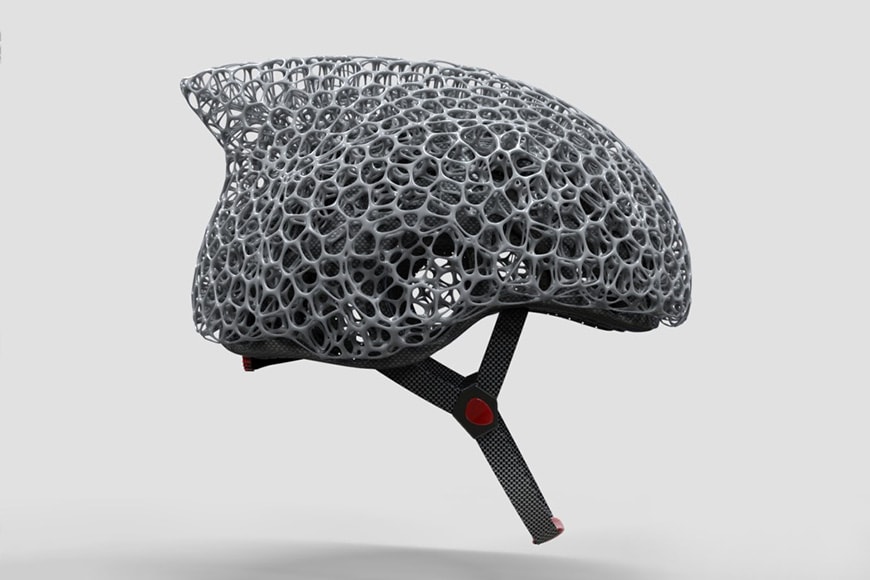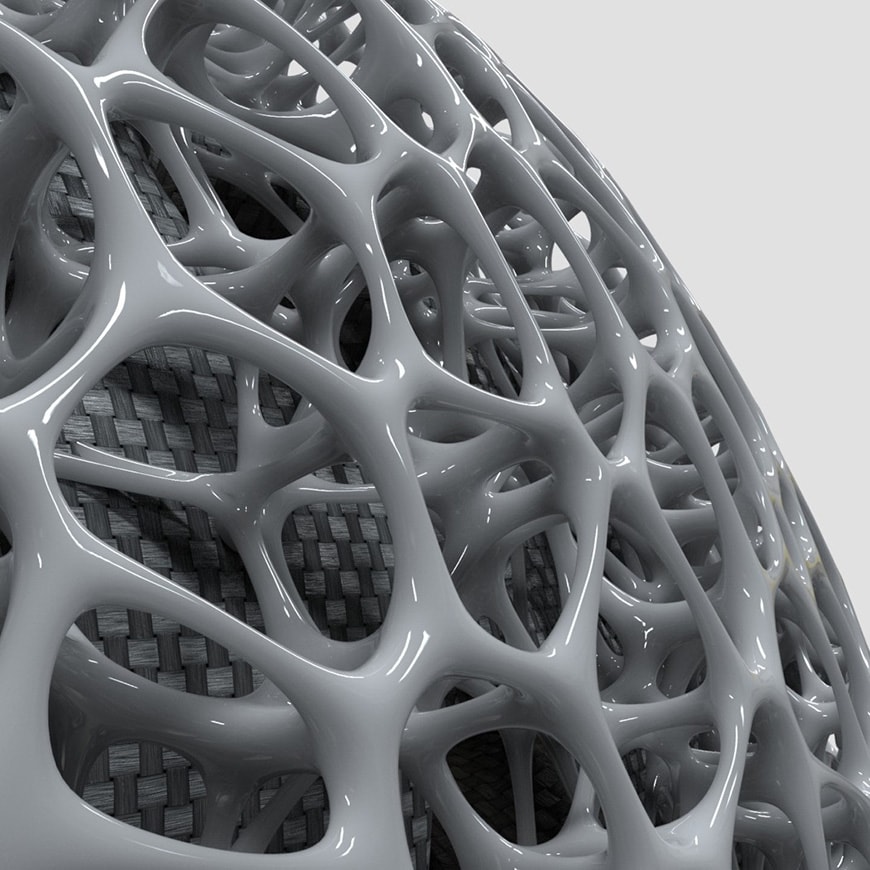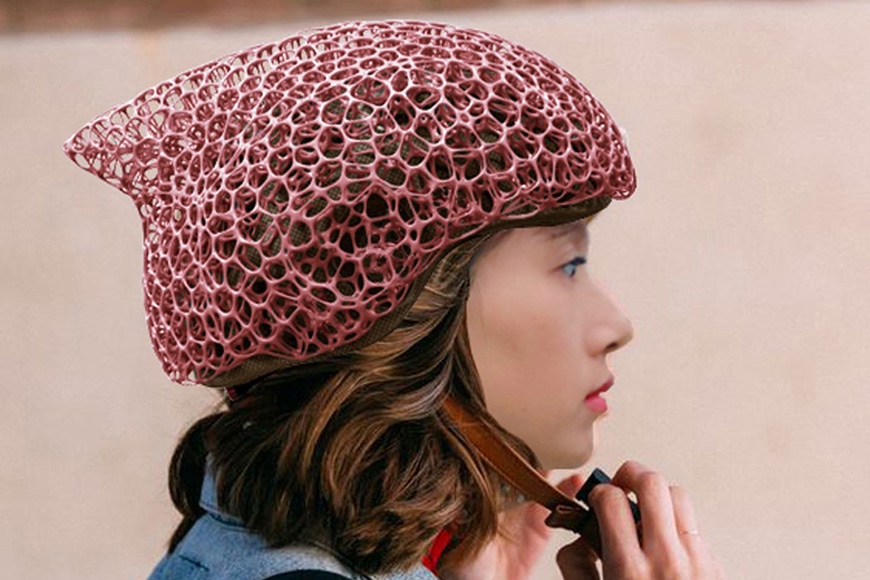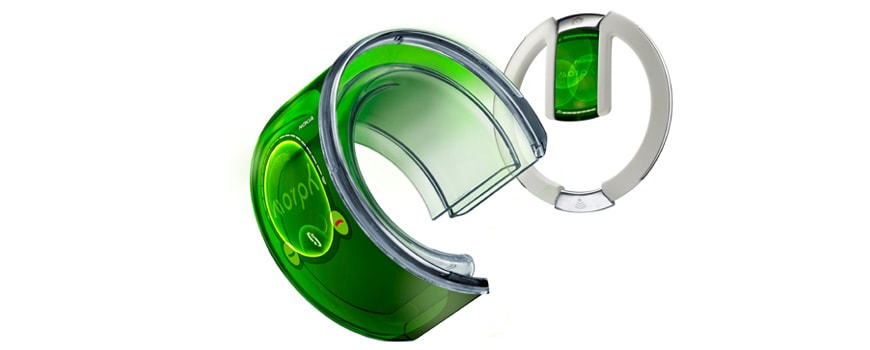Innovative bike helmet is made of bone-inspired 3D printed latticework
As inventive designers and manufacturers explore them further, it’s becoming clear that parametric design and 3D printing are more than expensive ways to produce ordinary objects through exotic techniques.
Chinese designers Yuefeng Zhou, Zhecheng Xu, and Haiwei Wang have recently developed an innovative bike helmet, called Voronoi, which combines parametric modeling, bionics, and 3D printing into one object.
The geometry of the helmet is based on the diagrams studied by Russian mathematician Georgy Voronoy in the early 20th century. In a nutshell, Voronoi diagrams, also known as Thiessen polygons, tessellate a three-dimensional volume into many polyhedron cells whose corner points are closer to a given point than to any other point in a finite set.
An example of Voronoi tessellation of three-dimensional space; an image from “Efficient Computation of 3D Clipped Voronoi Diagram” by Dong-Ming Yan, Wenping Wang, Bruno Levy, and Yang Liu. The University of Hong Kong, Pokfulam Road, Hong Kong, China Project Alice, INRIA, Nancy, France.
Detail of the outer shell structure of the Voronoi Helmet.
The 3D-printed outer shell of the helmet, which mimics Voronoi patterns found in animal (and human) bone, combines high mechanical strength with a lightweight structure by distributing external forces, such as those produced by impacts in traffic collisions, from the hit point to the adjacent parts of the shell “porous” structure, thus maximizing shock absorption and potentially reducing the damages of the impact while remaining comfortable in ordinary situations.
Consisting of a 3D-printable fiberglass-resin outer shell and an inner hard hat made of carbon fiber and kevlar, the Voronoi Helmet is available (only in China, to date) in three different sizes.
This cross-section of the helmet shows the outer shell in fiberglass resin and the inner hat made of Kevlar.
Unless differently specified, the images are by Zhecheng Xu and Yuefeng Zhou, 2019; courtesy of A’ Design Award and Competition.
copyright Inexhibit 2024 - ISSN: 2283-5474








